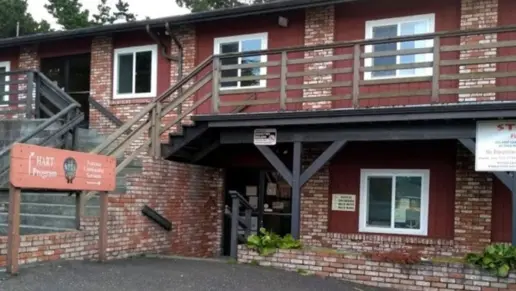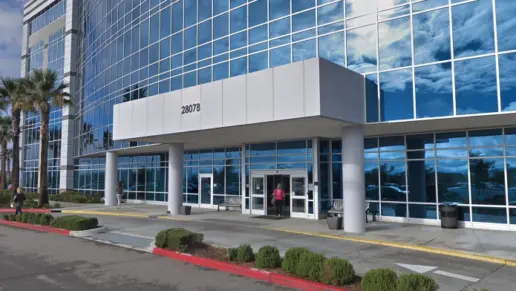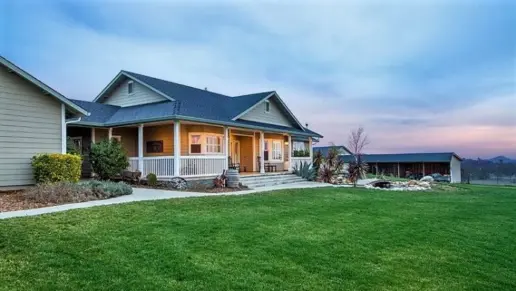I was inpatient for 36 days at Centinela hospital, and MaMa Doreen and Rachel were my admissions counselors. I stayed in the backhouse for three months after graduating and moved onto the sober living facility on 54th. Street until I got 18 months into my sobriety and moved ...
About JWCH Mini House
Located in Los Angeles, California, Mini Twelve Step House is an alcohol and drug rehab program for women, including pregnant women and postpartum women. Each person has the opportunity to participate in their service for longer than the traditional 28-day stay, making this location a long-term stay facility. The purpose of extended stays for addiction treatment is that it allows the client more time to practice the tools and recovery skills they learn in treatment before moving back into their home environment.
Mini Twelve Step House focuses on the 12 Steps of Alcoholics Anonymous to help their clients. Each person is treated as a whole person and will be treated with dignity and respect. Their services include:
The residential program offers individual therapy, group therapy, family therapy, couples counseling, personalized treatment plans, parenting classes, gender-specific education and treatment, educational classes on the disease of addiction, goal planning, and discharge planning.
Mini Twelve Step House accepts most insurance plans, including Amerigroup, Anthem, Blue Cross Blue Shield, Magellan, United Healthcare, Cigna, ComPsych, Aetna, and more. Out-of-network benefits may vary, so individuals are encouraged to contact their insurance carrier to learn more about their coverage.
Latest Reviews
Rehab Score
Gallery

Location
Other Forms of Payment
Self-pay involves paying for treatment out of your own pocket. You can use savings or credit, get a personal loan, or receive help from family and friends to fund your treatment. If you don't have insurance or your insurance plan doesn't cover a specific program, self-pay can help ensure you still get the care you need.
Financial aid can take many forms. Centers may have grants or scholarships available to clients who meet eligibility requirements. Programs that receive SAMHSA grants may have financial aid available for those who need treatment as well. Grants and scholarships can help you pai for treatment without having to repay.
Medicare is a federal program that provides health insurance for those 65 and older. It also serves people under 65 with chronic and disabling health challenges. To use Medicare for addiction treatment you need to find a program that accepts Medicare and is in network with your plan. Out of pocket costs and preauthorization requirements vary, so always check with your provider.
Medicaid is a state based program that helps lower-income individuals and families pay for healthcare. Medicaid covers addiction treatment so those enrolled can use their coverage to pay for rehab. When a program accepts Medicaid the client often pays very little or nothing out of their own pocket.
Private insurance refers to any kind of healthcare coverage that isn't from the state or federal government. This includes individual and family plans offered by an employer or purchased from the Insurance Marketplace. Every plan will have different requirements and out of pocket costs so be sure to get the full details before you start treatment.
Addiction Treatments
Levels of Care
Treatments
The goal of treatment for alcoholism is abstinence. Those with poor social support, poor motivation, or psychiatric disorders tend to relapse within a few years of treatment. For these people, success is measured by longer periods of abstinence, reduced use of alcohol, better health, and improved social functioning. Recovery and Maintenance are usually based on 12 step programs and AA meetings.
Drug rehab in California teaches participants constructive ways to stay clean and sober. Treatment revolves around helping individuals stop using the substance they are addicted to and learn healthy habits to avoid relapse.
Many of those suffering from addiction also suffer from mental or emotional illnesses like schizophrenia, bipolar disorder, depression, or anxiety disorders. Rehab and other substance abuse facilities treating those with a dual diagnosis or co-occurring disorder administer psychiatric treatment to address the person's mental health issue in addition to drug and alcohol rehabilitation.
Opioid rehabs specialize in supporting those recovering from opioid addiction. They treat those suffering from addiction to illegal opioids like heroin, as well as prescription drugs like oxycodone. These centers typically combine both physical as well as mental and emotional support to help stop addiction. Physical support often includes medical detox and subsequent medical support (including medication), and mental support includes in-depth therapy to address the underlying causes of addiction.
Substance rehabs focus on helping individuals recover from substance abuse, including alcohol and drug addiction (both illegal and prescription drugs). They often include the opportunity to engage in both individual as well as group therapy.
Programs


Clinical Services
Research clearly demonstrates that recovery is far more successful and sustainable when loved ones like family members participate in rehab and substance abuse treatment. Genetic factors may be at play when it comes to drug and alcohol addiction, as well as mental health issues. Family dynamics often play a critical role in addiction triggers, and if properly educated, family members can be a strong source of support when it comes to rehabilitation.
In individual therapy, a patient meets one-on-one with a trained psychologist or counselor. Therapy is a pivotal part of effective substance abuse treatment, as it often covers root causes of addiction, including challenges faced by the patient in their social, family, and work/school life.
For clients who are struggling with ambivalence toward change, motivational interviewing in California can help strengthen their commitment to change. Using a conversational method, the therapist helps you explore your motivations and empowers you to make the changes you desire.
Cognitive behavioral therapy in California is a method that therapists often use for the effective treatment of substance use disorders. It is based on the principle that substance abuse stems from unhelpful ways of thinking and patterns of behavior, which can be changed by helping the individual learn better ways of coping.
Amenities
-
Residential Setting
-
Private Rooms
Staff

CEO

Chief Medical Officer

COO

Chief Administrative Officer

CFO

CIO

Chief Dental Officer

Director of Quality Improvement

Director, Grants Development Division

Director of Development

Director of Member Services
Contact Information
303 East 52nd Street
Los Angeles, CA 90011


